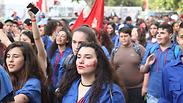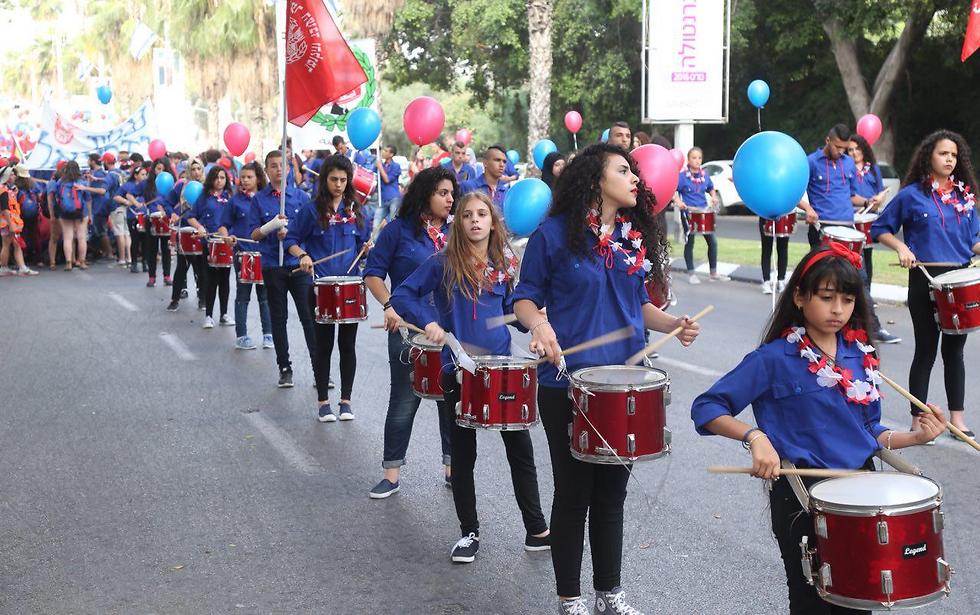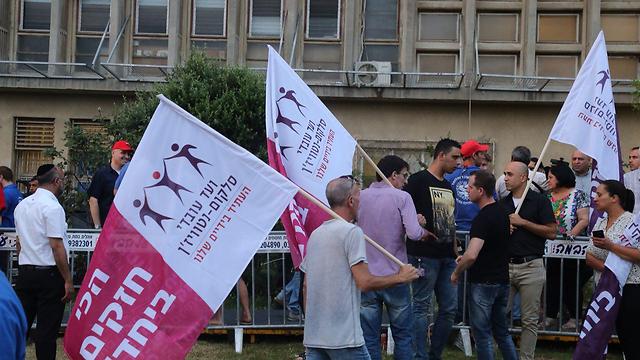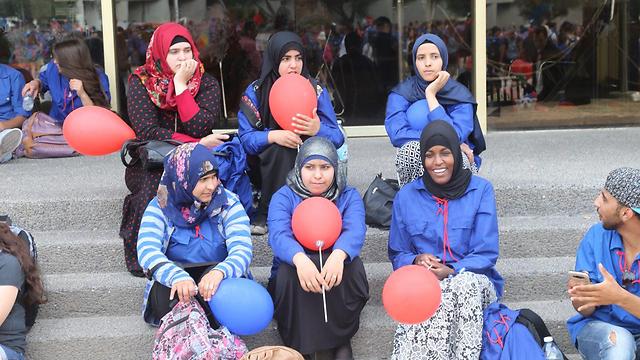
This year, the thousands of teenagers marched alongside representatives of workers unions, under the banner of the fight against exploitation of teenagers, youth, and pensioners in the work market.
Marchers waved red flags and staged scenes demonstrating exploitation in the work force.
The march ended at the Histadrut (General Organization of Workers) building in Tel Aviv, where certificates of appreciation were awarded to leading and new workers unions.
"You are the harbingers of the social change," said Histadrut chairman Avi Nissenkoren. "We all need to have a more equal society. You are the future generation that represents this change and we're paving the way for you. When I see you, I believe in a better future for the State of Israel."
Nissenkoren said May 1 was "a holiday that represents solidarity and cooperation. We are making a clear statement here: We will bring forth social change. It's in our hands."
Nissenkoren said among the Histadrut's recent achievements are "raising the minimum wage in NIS 1,000 and leading a change in the employment of contractor workers," and promised "to make sure those with disabilities are recognized and accepted as equals. We will act and fight for working men and women to make the same pay for the same job. Our duty is also to take care of pensioners, because they're part of us."
Esther Ebit, 17, from Lod, spoke about the establishment of the workers union at the Burger Ranch restaurant she works in. "In a reality where teenagers are treated as a cheap, available work force, it's very easy to violate our rights and disregard us. In such a reality, my union protects me. Thanks to joint efforts by HaNoar HaOved VeHaLomed, the union, and the chain's management - Burger Ranch is now a better work place."
Nur Suwad, 21, a Bedouin resident from northern Israel, spoke about joining HaNoar HaOved VeHaLomed. "Before arriving at my high school, I was working in horrible conditions, and it was only when I got to the school that I realized I was nobody's slave and no one can exploit me. I told the representative of HaNoar HaOved VeHaLomed in the Histadrut that when I worked as a night watch, I was exploited. After a three-year legal battle, I won. Fighting exploitation is hard work, I know it firsthand."
May 1, the International Workers' Day, was established at the 1889 Second International conference in Paris. The date was chosen in commemoration of the 1886 Haymarket affair in Chicago, when four demonstrators were killed by police after a dynamite bomb was thrown at the officers during a rally that was part of a general strike for the eight-hour workday. Countless others were wounded and arrested. Eight of the leaders of the strike were condemned to death, with four actually executed.




















